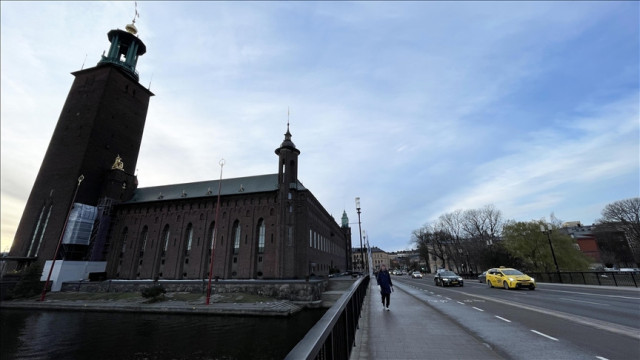Sweden has one of the most ‘unequal’ societies in the world: Expert
Economic inequality gap in the Nordic country widening and worrying, says Oxfam

Despite often being referred to as a "socialist state," Sweden's society has in reality become one of the most unequal societies in the world, according to experts.
Andreas Cervenka, one of Sweden’s most acclaimed and award-winning business writers, in his latest book, Greedy Sweden: How people’s home turned into a paradise for the super-rich, argues that "socialist Sweden" has become a heaven for the super-wealthy.
The expression "people’s home" is a phrase used to refer to a period in Sweden’s history that merged socialism and capitalism.
Cervenka argues that Sweden has become one of the most “unequal societies in the world” with worrying levels of indebtedness.
In Cervenka’s opinion, everything points to a devastating financial crisis coming sooner rather than later.
In 1996, there were 28 billionaires registered in the country but currently there are 1,095, according to a study published by the Credit Suisse Research, media outlet Le Monde reported.
In the last two years, Sweden’s ranking in terms of inequality has dropped 10 places from 10 to 20, according to the Oxfam’s 2022 Commitment to Reducing Inequality (CRI) Index.
This puts the country far behind its Scandinavian neighbouring countries, the CRI’s latest report revealed last October.
In 2017, Sweden was ranking best in the world at combating economic inequality, but since then, the Nordic country has ranked lower and lower in every Oxfam report.
CRI revealed that Sweden is far from having an equal society and that the gap between the wealthy and poor continues to grow.
Suzanne Standfast, secretary-general at Oxfam Sweden, told TT newswire that Sweden is an Organization for Economic Cooperation and Development (OECD) country “where economic inequality has increased the most in recent decades.”
Read more: Protest held to condemn Sweden incident
This, she said, is partially due to labour income being more taxed than capital income.
In other words, people with a low income “pay a higher percentage of tax than people with greater assets,” Standfast added.
Increasing poverty
In Sweden, the welfare state that was initiated since 1932, has long been the model of the “middle way,” responsible for reducing the socio-economic gaps.
This, however, changed in 1990s, when after the fall of the Soviet Union, the Swedish Social Democrats started to adjust themselves to the US-led neoliberal policies of the World Bank and International Monetary Fund, Masoud Kamali -- a co-author of the book Neoliberalism, Nordic Welfare States and Social Work Current and Future Challenges -- told Anadolu.
The number of households living below the poverty threshold has never been so high, he added.
Kamali, also a world leading professor of sociology and social work, thinks that the breakdown of the Swedish model is a result of neo-liberal policy of privatization, marketisation, deregulation, and the decline of the state.
Sweden, he said, wanted to attract foreign investment by lowering corporate tax to only 22% which is “very low” and in return, people are facing societal changes that resulted in poverty growing day by day.
The neo-liberal policy resulted in societal social insecurity where redistribution of resources in not taking place, added Kamali, saying the socio-economic gap is highly influencing education, healthcare, and even legal system.
Standfast argued that the issue of economic divides has not been mentioned during last year’s election campaign in the country.
“Both the UN and the World Bank raise the issue, but Sweden is astonishingly quiet,” she expressed, adding: “We see no discussions about what these gaps mean for our society and our social development, which we need.”
Inequality rising globally
Even globally, the gap between the wealthy and the poor has increased, according to the Oxfam report.
This was particularly evident during the Covid-19 pandemic when most countries saw an increase in economic inequality, it said.
But Daniel Waldenstrom, a professor of Economics at Research Institute of Industrial Economics (IFN Stockholm), told Anadolu that the global economy is facing “large challenges,” however, in his opinion, the income distribution in the world as a whole has become much more equal over the last 20 years.
According to Waldenstrom, this is due to income gains in China and India, where reforms have lifted millions of people from “outright poverty into a more middle-income status.”
So, this has resulted in income inequality at the global level becoming much more equal today than it was, “say 20 or 30 years ago.”
He also stressed that in many countries, there are still large income differences and so there is “more room for improvement” in terms of policymaking, infrastructure, and investment.
Standfast, however, insisted that the trend is negative globally and that the gap is getting wider as the index shows that both rich and poor countries “have failed miserably in preventing economic inequality.”
“We see this as incredibly worrying, especially giving the impending economic downturn,” she added.



















COMMENTS
Comments are moderated and generally will be posted if they are on-topic and not abusive.
For more information, please see our Comments FAQ